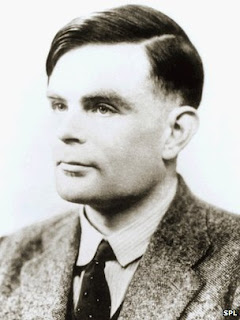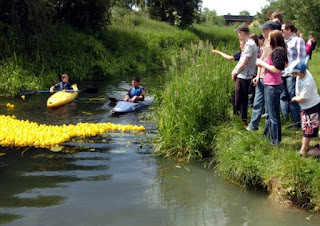374
Some rothar, a few kolo, a dviratis or two, some pyörä,
at least one hjóliđ and lots of fiets at Amsterdam station's bike-park
ROBINSON’S GERMAN JOURNEY: DAY TWELVE
SUNDAY 1 APRIL 2012AMSTERDAM
Friendly, comfortable, beautiful Amsterdam…
Final days are melancholy days. Your mind is preoccupied with the lastness of the things you do. The final day in a foreign city; the final mouthfuls of unfamiliar food, good or bad; your last tram rides; the final few hours you’ve been granted to soak up the views and the sounds; your last few postcards bought, written and sent; the search for gifts, mementoes, souvenirs.
Mementoes and souvenirs. I couldn’t help it and it’s always the same, wherever and whenever I go. Already - with still a day to savour once again the flavours of one of my favourite cities - I was aware of the mountainous stock of memories my German Journey had given me.
I’d been lost in thoughts such as these all through breakfast and was still distracted by them as I stepped out of the hotel and straight into the path of a passing cyclist. I saw her more or less just in time, leaned back heavily against the railings and thus avoided what would certainly have been a particularly painful collision with her handlebars.
She stopped in her tracks and ran back to me, full of the most profuse apologies for an incident that hadn’t really happened and which would have been my fault anyway. While I was reassuring her that I wouldn’t be troubling the Dutch health system, I noticed how tall she was, how lovely her waterfalls of auburn curls were, how brightly her eyes shone, how genuine was her concern and how snazzy her cycling outfit looked.
Things, I decided, can’t go on like this. Whatever next?
--------------------------------
Chastened, I called in to see the wonderful Julietta at the French boulangerie on Leidsestraat. I’d promised to go back at the end of my German Journey to tell her all about it but she was far too busy to listen; this was, after all, a fine and sunny morning and the first day of April. The tourist season seemed to have kicked off in a big way while I’d been travelling and discovering.
So I sat in a corner, out of harm’s way, with a coffee and a croissant (as you do) and thought about my heavenly cyclist. And in particular, about the word she’d used for her bike; she’d called it her fiets, which seemed a very strange word, even by awkward Dutch standards, for a bicycle.
English is stolidly prosaic: bicycle - ‘two wheels’. The ‘translate’ app on my iPhone told me that many other languages, too, adopted this matter-of-fact attitude, to the extent that Georgian, Basque, Estonian, Filipino and even Welsh actually use the same word - ‘bike’ - and that Spanish, Portuguese, Italian and others use a version of it. Even Norwegian manages ‘sykkel’
So why, I mused over my latte, doesn’t Dutch? Where on Earth does fiets originate?
I investigated further and found that other tongues are just as eccentric.
French calls them vélos, from velocipede - ‘speed foot’ - and German, Fahrrad - ‘journey wheel’. (In German, to cycle somewhere is to ‘travel by wheel’.)
Elsewhere, real linguistic mystery sets in. In Polish, a bike is a rower, in Lithuanian it’s a dviratis, in Finnish it’s a pyörä, in Icelandic it’s a hjóliđ and in Czech, Slovak and Slovenian it’s a kolo.
This is the kind of esoteric trivia I indulge in when I wish to forget for a moment, as I did then, that this was the last full day of my German Journey.
------------------------------------
Friendly, comfortable, beautiful Amsterdam….
I spent the day wandering, consciously ‘slowing down’. I visited a few of my favourite ‘brown cafes’, walked by my favourite canals, took a little tram ride just because I could, lingered on canal bridges and said Hello to two Dutch police horses.
My meanderings took me across the Amstel to the flea-market on Waterlooplein.
I think of it as an old-fashioned version of eBay; if something can be bought, it can be bought on Waterlooplein. Amidst all the retro stuff from the 60s and 70s - kaftans, parkas, kipper ties and flares - there were mountains of picturesque irrelevancies. I saw three buckets of rusty keys, someone's entire shoe collection, lots of LPs and vinyl singles, prints and pictures, hundreds of hats...
At Waterlooplein market
It's always busy there because there's always something there that somebody wants. It's what car-boot sales are evolving into and Amsterdam got there first - years ago.
Nearby, I bought a coffee outside the Rembrandt House and looked at Amsterdam's Big Mistake - the 'Stopera'. If a camel is a horse designed by a committee, then the Stopera is the city's camel.
Apparently, the Council decided that the city needed an opera house. So far, so good. But it also decided that a new town hall was needed as well - and that they should be housed in the same building.
In itself, this decision need not have turned out as badly as it did. They could have built their new town hall offices and made them look like a grand, avant-garde opera house. Instead, though, they built an opera house and made it look like a bland and faceless office block.
The result is, by common consent, the worst building in Amsterdam. Every city has to have a 'worst building', of course - places like Plymouth and Sunderland consist almost entirely of worst buildings. But each time I look at the Stopera (even the name is off-putting), I wonder whether it needed to be quite so ugly and out of keeping with what is, after all, an intimate and cosy city into which monumental buildings of this size need to be fitted very carefully indeed.
-------------------------------------
Now that I'd re-acquainted myself with those aspects of the city that always make me feel happy and content and thoughtful, I walked lazily back across the river into the old town. At the Flower Market I bought some bulbs and a solar-powered butterfly. That’s the mood I was in by now. I felt buoyed enough to take the plunge and sample a traditional Amsterdam snack.
Street-food here, as in England and elsewhere in western Europe, often reflects a colonial past. So there are speciality rolls, wraps and platters from Indonesia (the old Dutch East Indies) and Surinam (Dutch Guiana, on the northern coast of South America). But I opted to try something much closer to home - a street snack I'd somehow neglected to sample on my many previous visits to Amsterdam.
And that's because, as far as I am concerned, if God had meant us to eat pickled herrings in a bap, he wouldn't have given us apple and bilberry pie with custard.
But here on Koninksplein, at the western end of the Flower Market, stood the most famous herring bar in all of Amsterdam. There's always a queue here - like the one for 'real' hamburgers in Hamburg station - so I joined it and bought a herring bap.
It was scrumptious. I ate it on a bench under what many people say is the oldest tree in the city, talking to an off-duty cobbler who ate three of them. He looked out at the masses of tourists and said - rather generously, I thought - that he could understand why everyone wanted to come to Amsterdam but, too often, they didn't go anywhere else in Holland. Why, for example (he mused), didn't more people visit his home town - Deventer?
With unforgivable conceit, I declared that at least one English visitor had been there - twice! My trains into and out of Germany had stopped there. With matching smugness, he suggested that maybe next time I should actually disembark.
------------------------------
After we'd shaken hands (and I had solemnly sworn to spend some time in Deventer), I remembered Patricia, my travelling companion on the outward journey, whose home-town it was, too. I wished I could get in touch with her or sit beside her here under the plane tree on Koninksplein. I wanted to tell her about all the things that had happened to me after she'd got off the train that morning at Deventer. The need I felt to try and change her mind about Germany almost amounted to anxiety.
Until I realised that, in a way, she'd been right. Germany had not been 'cosy, comfortable and friendly' - it had been much, much more than that.
---------------------------------
From Koninksplein I walked round to another of my favourite little Amsterdam squares: the Spui ( - say spow). On Sundays, the usual book market there is replaced by an art-market which I'd never managed to visit.
A street-plaque on the Spui
I'm glad I made the effort this time. There were about forty stalls displaying artworks ranging from neo-impressionism through home-made baroque to the further extremes of worrying and unsettling surrealism. And there amongst them was the genial Gerard Carbo.
Gerard Carbo
The man himself was a work of art. Long white hair matched by a full white beard - and all of it framing a large, smiling and happy face. I loved his paintings and cards and told him so. He seemed to be able to turn the intimacy and smallness of Holland inside out. Sometimes, his paintings were of wide and open skies, endless seashore and fields. The Netherlands 'felt' enormous, windswept and wild.
In others, he displayed a similar, but more 'homely', version of inverted Dutchness. The boats that bobbed on his painted seas were of another Holland - rural and coastal and personal - and his painted flower-heads were sober and measured.
He gave me a card as a memento of our meeting. It's a lovely, wistful and sombre painting of some tulips. I'm looking at it now and have just realised what a perfect reflection it is of the way I was feeling that final afternoon.
----------------------------------
Eventually I washed up at my hotel again. Not for me the pubs and bars and cafes of Sunday-night Amsterdam. I wanted to wallow in the sad lastness of the evening. And to wallow in a bath, too.
The art-deco exterior of my hotel
I needed someone to share my aloneness with and thoughtfully, the hotel had provided me with a squeaky plastic duck who served the purpose admirably. With breathtaking originality, I called her Kwaken (the Dutch for ‘quack’) and she bobbed sympathetically in the bath-water while I poured my heart out to her.
She still does. Kwaken is my new best friend.
Kwaken and me
I stole her.------------------------------------
CONTACT ME
Post comments on this blog or email me: truckshunters@googlemail.com





















































